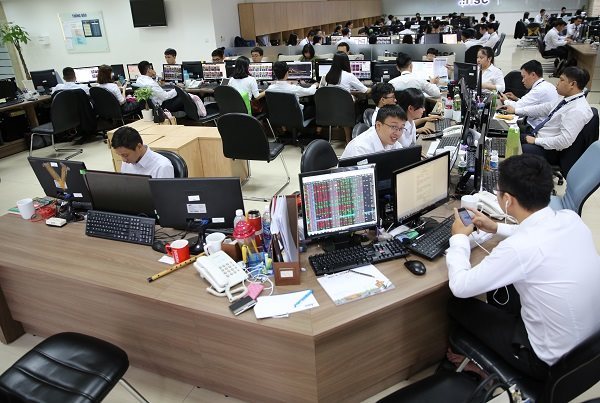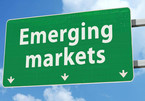The National Assembly on November 26 ratified the amended Securities Law, in which the functions and tasks of the Hanoi and HCM City Stock Exchanges have been redefined.

Analysts commented that the new law paves the way for the upgrading of the Vietnam’s stock market and helps consolidate investors’ confidence.
The transactions of bonds and derivatives securities will be implemented at the Hanoi Stock Exchange, while stock transactions will be made at the HCM City Stock Exchange. In the future, there will be only one trading index system, or the VN Index.
The merging of the two stock exchanges, Hanoi and HCMC, cannot be implemented at this moment. The two exchanges need to operate separately for the time being and upgrade their capability. When there are good conditions, the Prime Minister will make a decision on merging the two exchanges.
| The merging of the two stock exchanges, Hanoi and HCMC, cannot be implemented at this moment. The two exchanges need to operate separately for the time being and upgrade their capability. |
The Vietnam Stock Exchange, once established, will be a 100 percent state-owned limited company. In the current conditions of the market, this mode is necessary.
According to the National Assembly’s Economics Committee Vu Hong Thanh, the government will build a plan to equitize the Vietnam Stock Exchange after 2023. When the conditions become favorable, there will be no need for the State to continue to hold 100 percent of capital at the stock exchange.
Some experts commented that the decision not to merge the two exchanges at this moment shows the cautiousness of the government.
Meanwhile, financiers, investors and listed companies said they don’t expect too many changes with the market though the amended Securities Law has been ratified. The news about putting all shares into trading on one bourse (except UpCom) has been discussed for a long time, but no headway has been made.
From now to mid-2020, when the amended Securities Law takes effect, the Ministry of Finance will have seven months to compile decrees and circulars that guide the implementation of the law.
At present, the HCM City Stock Exchange makes up 93 percent of total capitalization value of the Vietnam’s stock market. Meanwhile, half of the daily trading value of the Hanoi Stock Exchange depends on ACB stock.
Thoi Bao Kinh Te Sai Gon commented that the existence of the Hanoi Stock Exchange doesn’t have much significance to the finance market, while it costs securities and fund management companies a lot of money. Besides, the state also has to spend money to manage the bourse.
Companies tend to choose the HCMC Stock Exchange, not the Hanoi bourse, to list their shares. Many companies have left the Hanoi Stock Exchange for the HCM City bourse.
Kim Chi

Funds seek profits after stock market officially upgrades
Some active funds are pouring money into the Vietnam’s stock market in anticipation of the market upgrading and are planning to withdraw the money to make a profit when the upgrading is announced.

Foreign investors sell more than buy in Vietnamese stock market
The Vietnamese stock market is very promising in the eyes of foreign investors. However, the barriers in liquidity and transaction fees have discouraged them.
 One of the major issues stipulated in the amended Securities Law which takes effect on July 1, 2020 is the establishment of the Vietnam Stock Exchange.
One of the major issues stipulated in the amended Securities Law which takes effect on July 1, 2020 is the establishment of the Vietnam Stock Exchange.